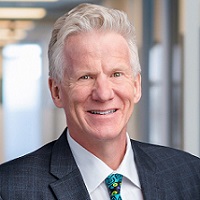 By Nick van Terheyden aka Dr Nick, Principal, ECG Management Consulting
By Nick van Terheyden aka Dr Nick, Principal, ECG Management Consulting
Twitter: @drnic1
Host of Healthcare Upside Down – #HCupsidedown
If you’ve ever watched one of Chef Gordon Ramsay’s TV shows, you may have a sense of how much work and coordination goes into delivering food to patrons—at the appropriate temperature, cooked to the proper specifications, and presented on time. When something goes wrong in the kitchen, it can lead to a cascade of problems that might start with one dish and end up with a whole course being delayed or even ruined.
All of this reminds me of primary care and makes me wish for a Gordon Ramsay figure to take on a “nightmare” healthcare system. I doubt even Chef Ramsay could fix some of these problems with his classical 24-hour approach.
Episode NOW on Demand
But to take the analogy further, look at any great restaurant service and what you’ll find is a team of specialists who all contribute to the kitchen’s success. The main chef isn’t the only one cooking; in fact, they may not even cook during every service, but their influence is felt at the table all the time. A sous chef, pastry chef, sauce chef, and others are there to ensure the meal goes smoothly.
Healthcare, and primary care in particular, needs the same level of teamwork and contributions to deliver well care to everyone in the community, especially to those who are suffering from chronic conditions or lacking equitable access.
Dr. Christopher Crow is the CEO and co-founder of Catalyst Health Group. On this episode he explains how a subscription-based approach to primary care can help PCPs move away from the fee-for-service model, improve access, and provide individualized care for their patients. Below are a few excerpts.
On whether his company is simply offering concierge medicine.
“The name ‘concierge’ often connotes something for a higher socioeconomic population. From that standpoint, no. But the ideals of conscientious care, of ‘I’m available to you, anytime, anyplace, to provide the services you need in your health journey,’ well, the answer to that is yes. And ironically, we have often called our business ‘concierge for the common man,’ as if it’s really something that’s valuable only to people that have a certain amount of wealth. How might we make something from a health equity standpoint? How would we reimagine those same services being available to everybody?”
The compounding value of the patient-PCP relationship.
“Studies show over and over and over again that when individuals have a long-term relationship with their primary care physician or provider, it leads to longer life, lower total cost during that life, and more good days than bad. Why wouldn’t we try to scale that across America? We think relationships are what makes the world go round. It’s our number one core value that relationships matter. We talk about relationships compounding the same way interest compounds—if you can make a one-degree better choice about your health every single year because of you and your physician’s relationship, that compounds over time. And that’s what leads to that longevity and [lower] total costs and more good days than bad.”
Escaping the fee-for-service model.
“I tell physicians all the time that they’re stuck in a Stockholm Syndrome—they don’t realize they’re captured by fee-for-service and that there’s actually a better way to take care of people. As they get closer to realizing that, and that the subscription model isn’t necessarily capitation of the 1990s, they begin to feel empowered to say, ‘wait a minute, I can actually think about what’s best for my patient.’ Think how radical it is to actually say that. When they’re in fee-for-service, they have to get to the next room—they really can’t think about what’s best for [the patient] for more than a second, and then they move on. In a subscription model you can begin to look at data and say, ‘Where do I have opportunity to invest? How might I work with a local nephrologist on dialysis? What if I brought a cardiologist on board and a psychiatrist from a tele-availability standpoint?’ It’s powerful to watch [PCPs] light up again. They don’t mind hard work. They just want to feel like it’s meaningful.”
About the Show
The US spends more on healthcare per capita than any other country on the planet. So why don’t we have superior outcomes? Why haven’t the principles of capitalism prevailed? And why do American consumers have so much trouble accessing and paying for healthcare? Dive into these and other issues on Healthcare Upside/Down with ECG principal Dr. Nick van Terheyden and guest panelists as they discuss the upsides and downsides of healthcare in the US, and how to make the system work for everyone. Join the conversation on Twitter at #HCupsidedown.
This article was originally published on the ECG Management Consulting blog and is republished here with permission.
